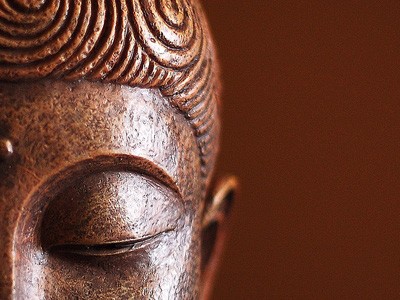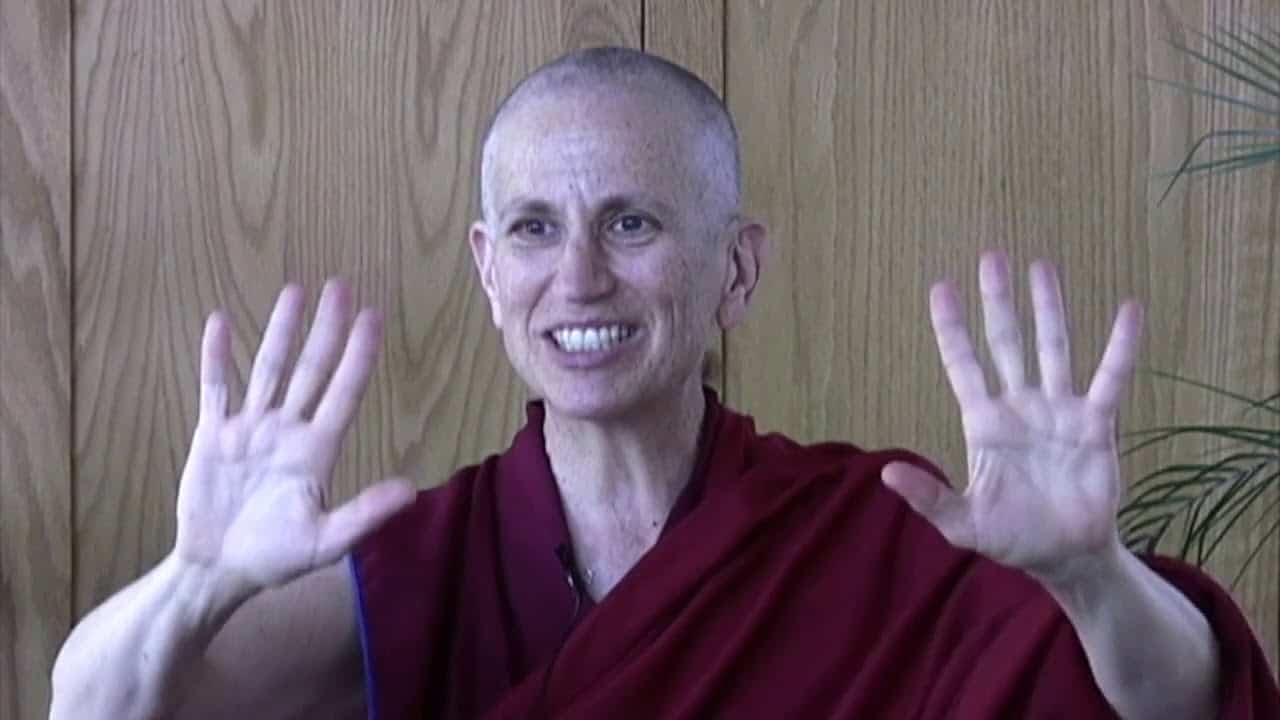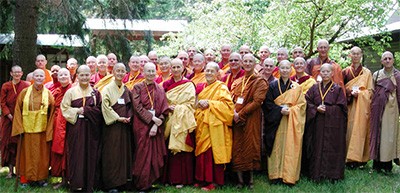Getting along with others
By M. P.

My advice to the imprisoned person who feels if he lets people disrespect him, that he’ll be taken advantage of, is: to put up less of a target. Be less demanding. Be someone who exhibits integrity and consistency on a daily basis. Exhibit a consistent ethical conduct which people will develop confidence in. We can be respected by gang bangers without becoming one. We must remember to give everyone respect without exception and guard what we think and say, as we guard our eyes in a sandstorm. I’ve always found that incarcerated people respect others who truly demonstrate that they’re fulfilling their obligations to their spiritual path. People who walk the walk are respected. People who talk the talk but who don’t walk the walk are not respected.
Exchanging self with others, or taking and giving (tonglen), or placing others above oneself, or accepting the defeat and offering the victory to others, are all techniques which help me live in a crowded area with violent, egotistical men.
I give all that is precious or positive when I exhale and it helps me abandon that territorial sense of me and mine and my space, and when I breathe in, I feel the suffering that others are experiencing. These men are angry, lonely, insecure, afraid of being tested or hurt, afraid to be excluded from a group or gang or circle of friends; they are lost in delusion and handicapped by ignorance. If we really think about it, we feel compassion for them. We won’t feel aggressive towards them.
Dialogue is important. Let people know how we are looking at things. We can accomplish this by talking in proximity to the person we want to know something, and they can overhear us, and ultimately they become aware that we are trying to engage in a conduct that is non-aggressive and respectful.
Remembering that we aren’t more important than any other person will help us become humble. We will not offend others with harsh words. We won’t be heard criticizing others. Even in prison, people respect people who don’t openly criticize others. Quiet people are respected. Clean people are respected. Genuine spiritual practitioners are respected. Be sure to practice what you preach. Walk the talk in addition to talking the talk.
I’ve been in bloodthirsty maximum security prisons and, perhaps because I let it be known that I was a man of peace, one who felt we were all family because of our interconnectedness as living beings, and that I would not consider disrespecting anyone, and that if someone attacked me I would not hurt them back, I was never attacked. When we remove the target, there is no goal for the other person. When we remove ourselves from the ring there is nobody left to box or wrestle. When we put down the ping pong paddle the competition ends.
There is no victory or accrued peer esteem when a “warrior” in prison attacks a “lamb,” an old man, a kid, a sissy, or a pacifist. There isn’t anything to be gained. More than likely, they will be laughed at and humiliated for beating on a victim who offered no resistance.
And ask, “Who is being disrespected?” And maybe ask, “Why do I perceive this as disrespect?” Why is it that a person cutting in line ahead of us is a form of disrespect? Because someone else decided it was? So what if a person bumps into us and doesn’t say, “I’m sorry”, or “Excuse me”!? Not everyone was raised by people who taught them the same manners we were taught. There’s no right or wrong, only “different”. We can be more accepting. We can think of others as our idiot, but loved, family members. We don’t stab our rude cousins to death. We know we have to display tolerance because “they’re family.” So why not use this technique with everyone else?
As long as we play this disrespect game with others, it will continue to be played. When we become our own coach and take ourselves out of the game, the combat is over.
There may be people who feel anger towards us. We may not be able to talk directly with them, to let them know we are demilitarizing ourselves, but we can let them overhear us, or we can talk to their buddies, or we can let their buddies overhear us. We know as long as we express ourselves audibly, the word will get around. The prison grapevine is effective. So if we are trying to change ourselves and we want people to know we are putting down our guns, we merely have to speak it, and then live consistently manifesting our new walk. Others will not violate our space.
Incarcerated people
Many incarcerated people from all over the United States correspond with Venerable Thubten Chodron and monastics from Sravasti Abbey. They offer great insights into how they are applying the Dharma and striving to be of benefit to themselves and others in even the most difficult of situations.


